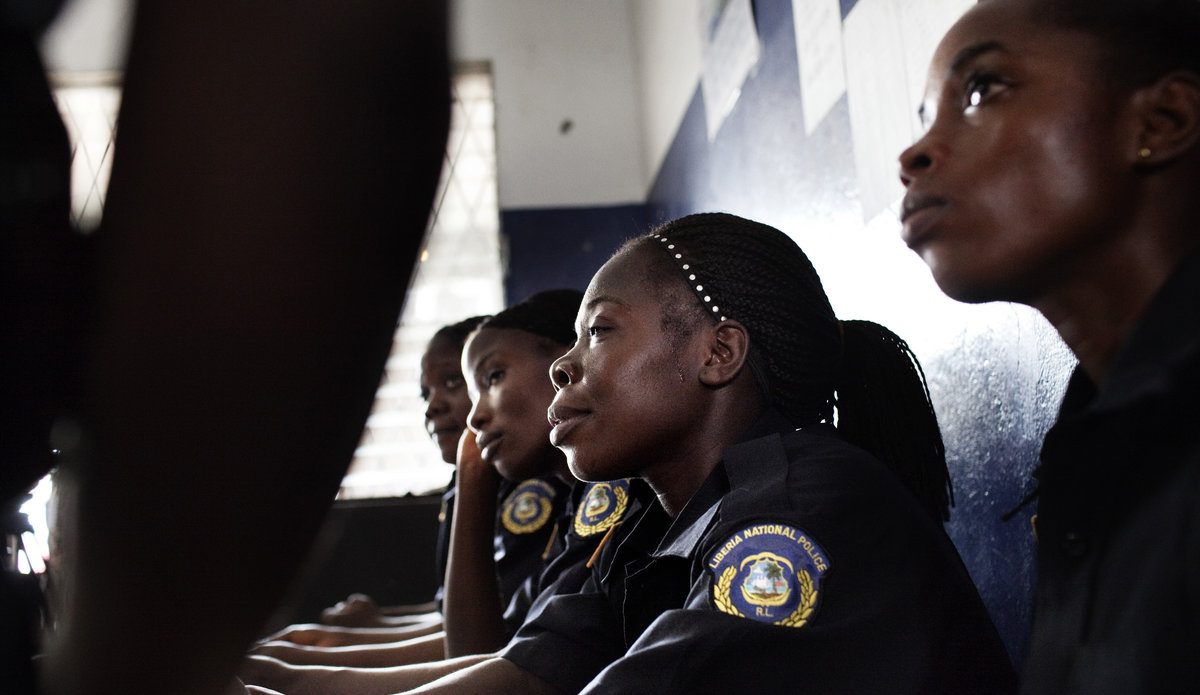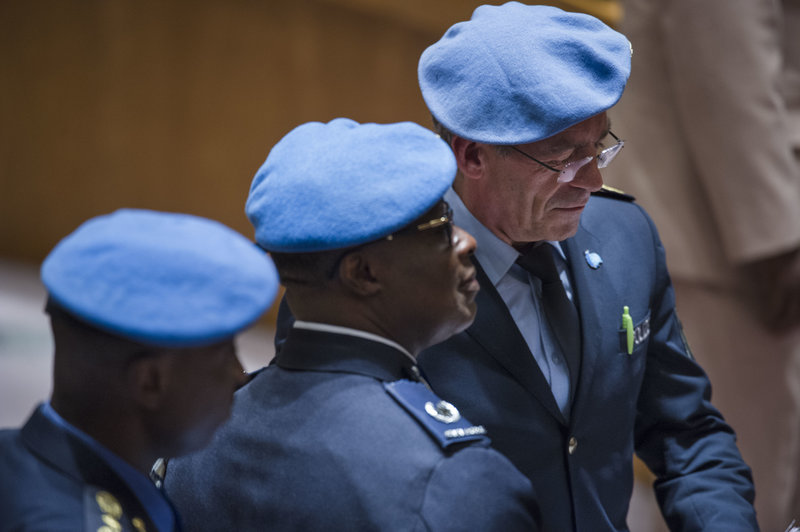UN police reform
In recent years, the United Nations Police Division has undertaken a number of initiatives to expand and consolidate the role of United Nations police working in United Nations peace operations.
Partnerships
International policing is becoming more multi-dimensional as it strives to re-establish the rule of law while providing public safety and security. United Nations Police are working on sexual and gender-based violence in a number of post-conflict settings. They are helping to train national police services. They are helping to reinforce systems that address trans-national crime, and they are working closely with the International Police Organization (INTERPOL), to consolidate lessons learned and define practices of international policing.
The United Nations works closely with many partners, including its Member States, the United Nations Development Programme (UNDP), the United Nations Office on Drugs and Crime (UNODC), the African Union (AU) and the European Union (EU).
United Nations police towards 2020: Multi-Year Vision and Strategy
In accordance with the Secretary-General’s agenda and relevant Security Council Mandates, the United Nations Police adopted a vision and Multi-Year Vision and Strategy in March 2014, titled: United Nations Police Towards 2020: Serve and Protect to Build Peace and Security.
Report of the Secretary-General on UN policing
Upon request of the United Nations Secretary-General the High-Level Independent Panel on Peace Operations (HIPPO) presented its report on how United Nations peace operations can be made more effective, efficient and responsive in June 2015 (A/70/95). In his implementation report, the Secretary-General welcomed the progress on the Strategic Guidance Framework, took note of the work on new modalities for planning and recruitment and tasked the Police Division to initiate an External review of its future function, structure and capacity (A/70/357). An independent review team began work in early 2016 and submitted its findings to the Secretary-General in May 2016.
The Secretary-General submitted his report on United Nations policing (S/2016/952 of 10 November 2016), in response to Security Council resolution 2185 (2014), in which the Council requested a report on the role of policing as an integral part of peacekeeping and post-conflict peacebuilding.
The report also contains the Secretary-General's response to the external review of the functions, structure and capacity of the Police Division of 31 May 2016. Notably, it sets out his vision as to how to ensure that the United Nations police is ready to respond effectively to the challenges of the twenty-first century and contains 14 key recommendations that have fed into the reform of the peace and security architecture that Secretary-General António Guterres launched.
The report outlines how the environment in which the United Nations police operates has been altered by changing conflict dynamics. The United Nations police now engages in United Nations peace operations and post-conflict and other crisis situations across the entire peace and security spectrum, from conflict prevention and management to peacekeeping, peacebuilding and peace sustainment. It is often the breakdown of law and order that triggers United Nations deployment and, conversely the establishment or re-establishment of policing and other rule of law functions that allows United Nations peace operations to downsize and eventually withdraw.
Furthermore, the report takes stock of progress made and operational successes, such as the conferral of full responsibilities to host-State police in Timor-Leste and Sierra Leone; transition planning in Liberia, Côte d’Ivoire and Haiti; gendersensitive policing and gender-balancing efforts in Côte d’Ivoire, Darfur and Haiti; and evolved integrated rule of law approaches in Mali and Somalia.


